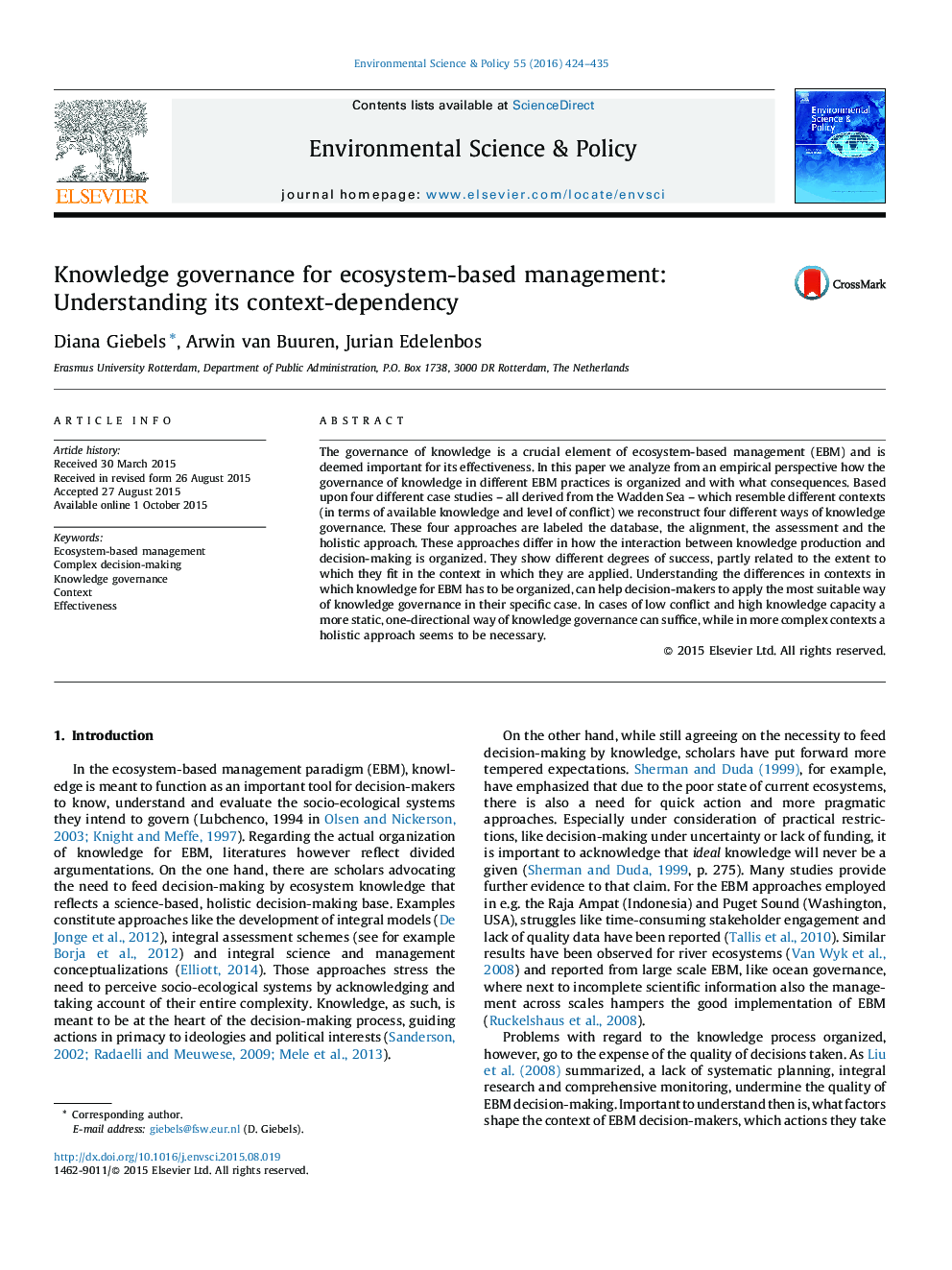| Article ID | Journal | Published Year | Pages | File Type |
|---|---|---|---|---|
| 1053440 | Environmental Science & Policy | 2016 | 12 Pages |
•Understanding context dependency of EBM knowledge governance needs theory building.•Comparative case study design used to develop typological theory.•Different types of knowledge governance described and evaluated.•All types deliver available, relevant and credible knowledge for decision-makers.•However, not each approach fits well into the context of application.
The governance of knowledge is a crucial element of ecosystem-based management (EBM) and is deemed important for its effectiveness. In this paper we analyze from an empirical perspective how the governance of knowledge in different EBM practices is organized and with what consequences. Based upon four different case studies – all derived from the Wadden Sea – which resemble different contexts (in terms of available knowledge and level of conflict) we reconstruct four different ways of knowledge governance. These four approaches are labeled the database, the alignment, the assessment and the holistic approach. These approaches differ in how the interaction between knowledge production and decision-making is organized. They show different degrees of success, partly related to the extent to which they fit in the context in which they are applied. Understanding the differences in contexts in which knowledge for EBM has to be organized, can help decision-makers to apply the most suitable way of knowledge governance in their specific case. In cases of low conflict and high knowledge capacity a more static, one-directional way of knowledge governance can suffice, while in more complex contexts a holistic approach seems to be necessary.
